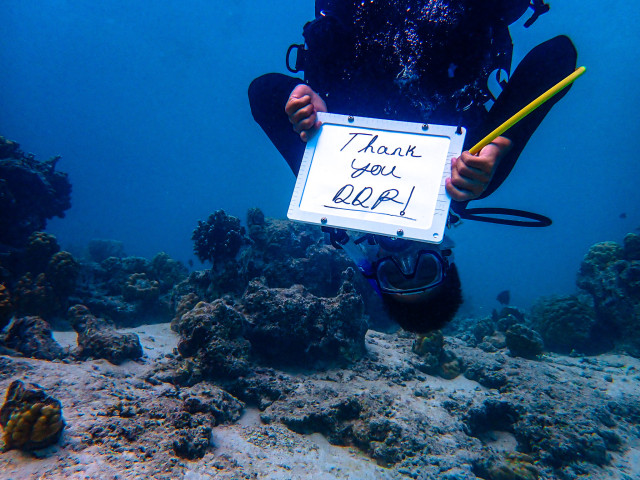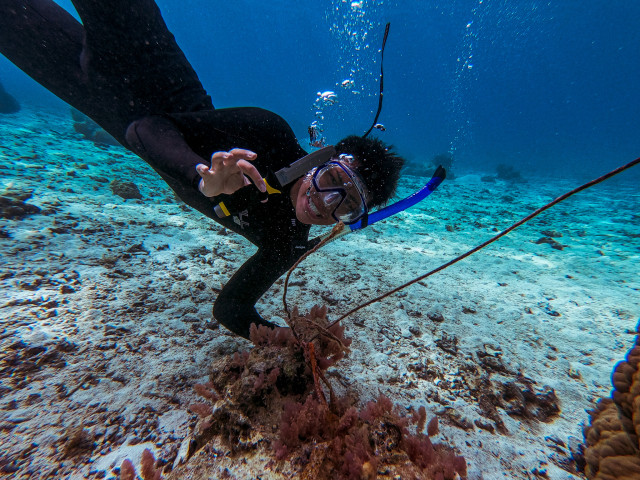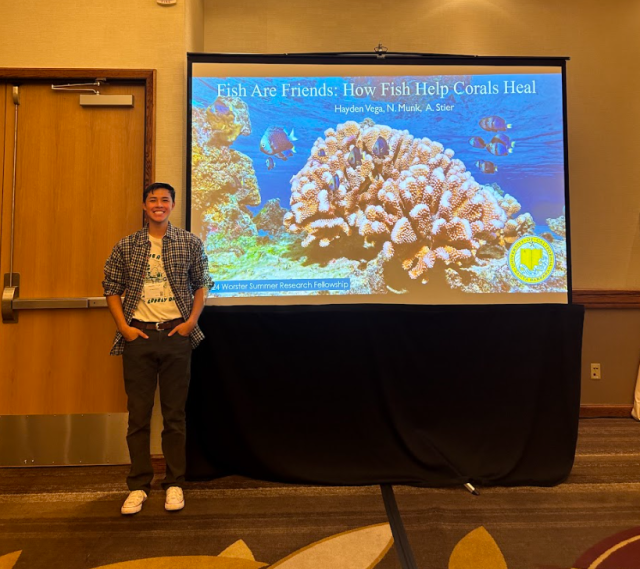
Hayden Vega: A First Generation, Triple-Major Undergraduate
And why researchers should prioritize science communication
Hayden joined FUERTE in 2021 as a part of our first cohort of fellows. He will graduate from UCSB in 2025, but he'll be a part of the FUERTE family forever, and we're excited to support him in his next steps as a field scientist.
As a fourth year and triple-major at UCSB, Hayden Vega is exploring how the role research plays impacts ecosystem management and their dependent communities. Hayden’s environmental passion began during father-son fishing trips at a local pond. “It’s more of a puddle, really,” says Vega. Yet this puddle sparked his ocean-sized educational journey in marine biology.
His triple major includes Marine Biology, Environmental Science, and “Ecology, Evolution, and Marine Biology.” Growing up in Long Beach, the ocean was a nearby unknown, an exploratory outlet. He never learned to swim, so visits to the Pacific stayed surface-level. “It wasn’t very accessible,” Hayden said, smirking in self-accomplishment. Vega “just learned how to swim last year” to become a research scuba diver and see what the water held with his own eyes. “I tried winging the swimming test, and of course I failed. I couldn’t have done it without the support of my mentors who literally got in the water and swam with me.”

Calling him modest understates his personality; his accomplishments are inspirational, but he doesn’t flaunt the work he’s done. Vega, a first-generation student, is currently excelling in three majors. He went from not knowing how to swim to becoming a research-grade scuba diver within a short period. He founded the Seal Beach Fishing Line Recycling Program after yanking out plastic pollution from the water (this program is still active, with receptacles at the beach to discard fishing lines that would have entered the water and endangered marine life). Vega is a Shoreline and Tom Rogers Scholar (given in recognition of his environmental stewardship work), along with a Diversity in Diving Fellow. The list goes on–impressive by any standard for an undergraduate student.

Discussing his skills was met with a similar reserved response. “I think I’m a bad-ish writer, but I’m really excited about improving because I have the most fun when I improve on my skills. Riding that steep learning curve is really fun for me.” His studies, although “untraditional,” have provided him with an abundant skill set to support the ecological field. In the summer of 2023, he ran independent research off Morea Island analyzing metabolic stress in coral to better understand symbiotic fish-coral relationships. The research aims to reduce the impacts of coral bleaching, an ecosystem supporting around 25% of all marine species. Once research analysis is completed, Vega hopes that it provides a framework for coral reef stewards to reverse the trend of bleaching. Vega isn’t satisfied with research outcomes which simply report on
outcomes. “The format of a scientific paper is disgusting to me,” Vega said. He wants communities to gain from the work scientists are doing to care for the environment, taking action on the findings. “Going to parks and public spaces were really important to me growing up because it was a way for me to connect with other people and with my family,” Vega said. “We could let loose and play.” Vega is connecting his research with communities and their local nature. “I’d like to make science more accessible to people through outreach.”
In an early-career internship, Vega worked with the Orange County Coastkeepers to support local outreach and education about the local marine system. This role showed him how research and outreach can build a stronger educational awareness than either could alone. “They had a dedicated Outreach branch and a dedicated science branch,” Vega explained. “It created a feedback loop. Outreach would tell science what was interesting and relevant, and science would fill in that gap.”
His areas of interest include both environmental research and communication. For Vega, this is an existential intersection for science. “You have an obligation to do research, create new discoveries, cultivate knowledge, and share that with your field. But you also have an obligation to share that with the general public.” Recognizing that this is a technically challenging problem for scientists, who are “pressed for time, pressed for money,” Vega keeps his time focused on his research and reaching out to community members about protecting coastal resources.
Thinking about life post-graduation is a senior’s least favorite topic of light conversation. While he’s unsure of what’s next, he hopes to refine his writing and communication skills to “find effective ways to communicate research with the public.” His future contribution to research seems clear: “It’s about making research meaningful and that people can actually use it. That's where I can make the most difference."
Whatever Vega chooses to research next, we can be sure to hear about his accomplishments.